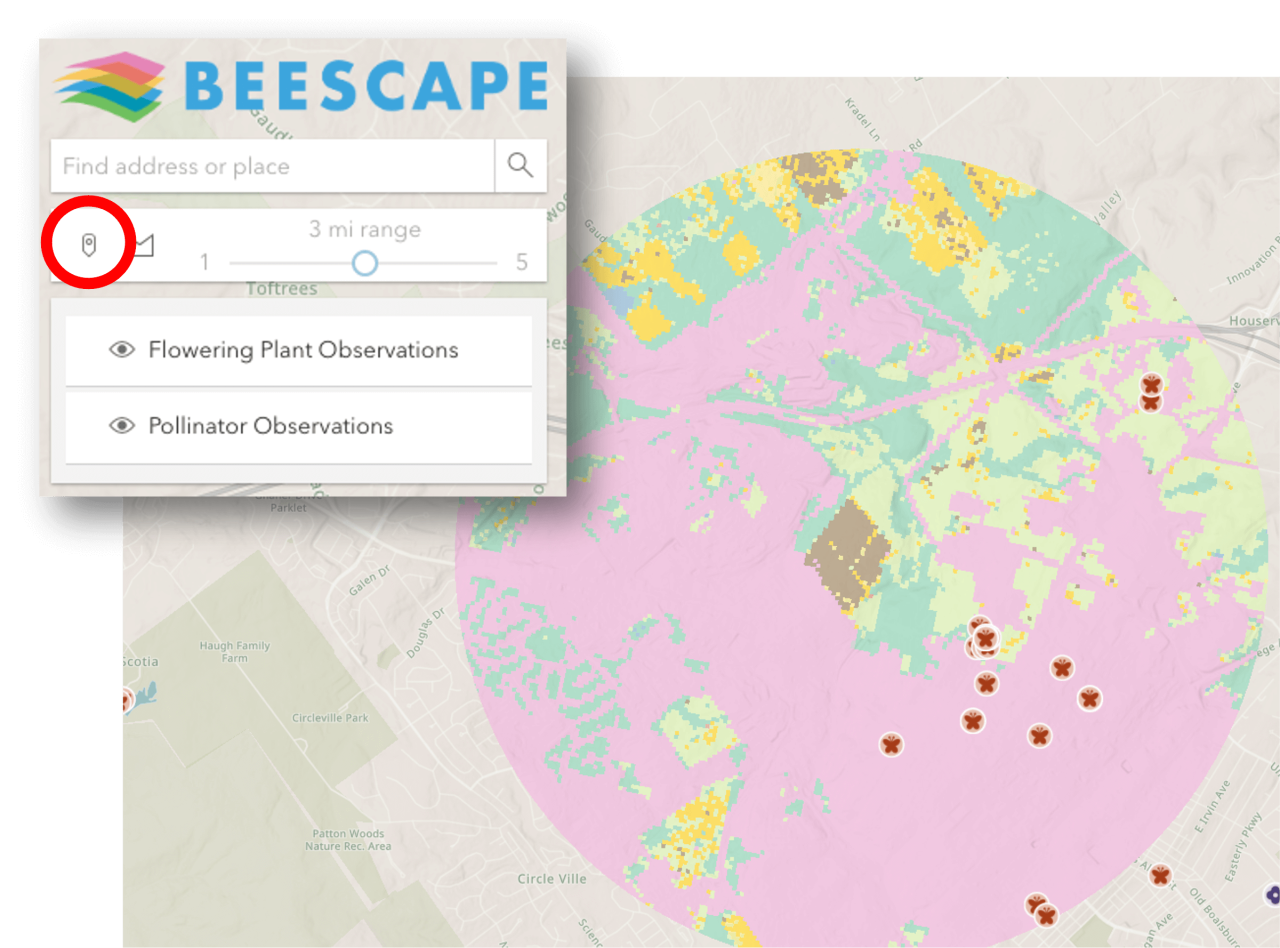July 28, 2023
Online landscape quality assessment tool receives updates

Beescape is a web-based tool developed by Penn State University to assess the quality of landscapes for supporting bees and other pollinators. Bees can fly up to 3 miles (5 kilometers) from their nest to find food, and Beescape provides an easy way for you to explore the landscapes surrounding your location.
A team with the Center for Pollinator Research has spent the last few months redesigning Beescape based on user feedback from beekeepers, growers, land managers, and scientists. It is now better than ever! Some new features include:
🌼 Specify a Point OR Polygon of Interest: Bees can over several miles to find food and Beescape provides an easy way to explore floral and nesting resources as well as insecticide exposure. Drop a point on the map and specify a foraging range to get results for a circular area of land. Alternatively, you can draw different shapes and landscape sizes and Beescape will summarize the resources available to the bees.
🦋 Discover Your Local Pollinators: Beescape now offers visualization of recent observations of pollinators and flowering plants in your area logged in iNaturalist! With this new feature, you can explore and learn about the diverse range of pollinators that inhabit your local landscape.
🌧️Explore Pollinator-Relevant Weather Trends: Weather conditions play a crucial role in the foraging behavior, winter survival, flowering seasons, and overall pollinator health. Beescape now incorporates a weather trends analysis feature, allowing users to explore temperature and precipitation trends and compare this year with historical weather patterns.
Next, the Beescape team will be working to add economic value of pollination services to the tool. They will also developing a bulk GPS location upload/download tool, to help people interested in modeling how their bee health and community metrics related to forage quality, nesting habitat availability and pesticide toxicity.
Explore Beescape at beescape.psu.edu.
For more information about Beescape, visit pollinators.psu.edu/bee-health/beescape.
